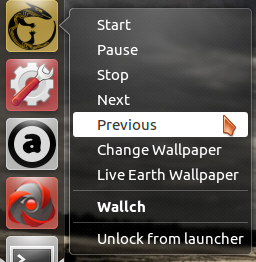1.7 KiB
| title | description | slug | hide_title |
|---|---|---|---|
| Desktop Launcher Actions | Add actions to the system launcher on Linux environments. | linux-desktop-actions | true |
Desktop Launcher Actions
Overview
On many Linux environments, you can add custom entries to the system launcher
by modifying the .desktop file. For Canonical's Unity documentation, see
Adding Shortcuts to a Launcher. For details on a more generic
implementation, see the freedesktop.org Specification.
NOTE: The screenshot above is an example of launcher shortcuts in Audacious audio player
To create a shortcut, you need to provide Name and Exec properties for the
entry you want to add to the shortcut menu. Unity will execute the command
defined in the Exec field after the user clicked the shortcut menu item.
An example of the .desktop file may look as follows:
Actions=PlayPause;Next;Previous
[Desktop Action PlayPause]
Name=Play-Pause
Exec=audacious -t
OnlyShowIn=Unity;
[Desktop Action Next]
Name=Next
Exec=audacious -f
OnlyShowIn=Unity;
[Desktop Action Previous]
Name=Previous
Exec=audacious -r
OnlyShowIn=Unity;
The preferred way for Unity to instruct your application on what to do is using
parameters. You can find them in your application in the global variable
process.argv.
